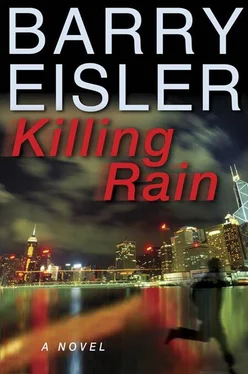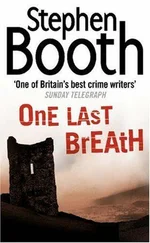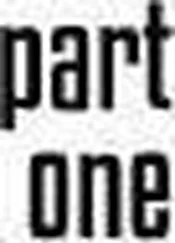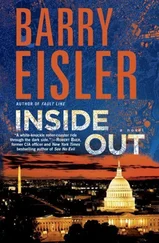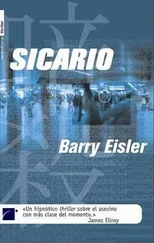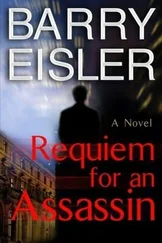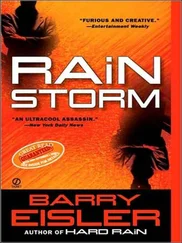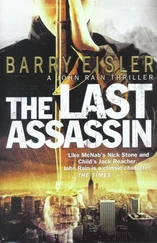We sat down and ordered tea. I briefed them on what I had just learned from my “source in Japan,” and on the latest news from the Washington Post . We all agreed that, although Gil’s information was to the contrary, the jury was in on Jim Hilger. Now all that remained was to carry out his sentence. And Manny’s.
We spent some time mapping things out. Through the hotel, I had already arranged a visit to the China Club for later that afternoon, and Dox and Delilah needed to do the same. Reservations shouldn’t be a problem; all they had to do was get there early enough to ensure getting seats at one of the small tables in the bar. We’d communicate via the commo gear. We would use the wireless video transmitters that Dox and I had employed in Manila, but this time we would supplement them with audio, and the combination would let us know when tonight’s targets arrived, where they were positioned, and, most important, when one of them excused himself from dinner to attend a call of nature. I was confident I could find an appropriate place to hide on the premises; Dox and Delilah would monitor it all from the bar and keep me apprised of whatever I needed to know. As for Manny and Hilger, I would use my hands on the first one that presented a target of opportunity, then immediately proceed to the other. With any luck, at that point I would be armed. VBM, whoever he was, would go down, too, if he got in the way, but other than that he meant nothing to me.
If this had been a sniping operation, I would have been the sniper; Dox and Delilah, the spotters. The division of labor isn’t always necessary, but it’s almost always useful. Having a partner spot, assess, and monitor the target enables the sniper to focus on a single task: killing. In this case, it would have been distracting for me to have to try to gauge whether and when Hilger or Manny might be moving toward my position; to adjust, if they went elsewhere; to react, if they did something I hadn’t predicted. Dox and Delilah, angled with their backs to the wall and monitoring everything on the laptop like two businesspeople discussing a PowerPoint presentation, would provide some welcome cushioning from all those vagaries. And backup, if something went wrong.
I looked at my watch. It was almost five o’clock. Time for me to go.
“You take the attaché,” I said, setting it on the table and discreetly removing the items I would need. “Everyone carries a bag in Hong Kong and you have to look the part. The commo gear, the laptop, everything is inside.”
“What about you?”
I eased my hips forward and started slipping the items I’d removed from the attaché into my front pockets. “I’ll find something on the way. Something the right size for adhesive-backed, wireless audio and video transmitters.”
He grinned. “What the well-dressed man is carrying these days, I understand.”
I looked at him, trying to decide, then said, “I think you’re going to have to lose the goatee. It’s too noticeable.”
He looked at me as though I’d suggested a vasectomy. “Son, I’ve been wearing this goatee for over twenty years.”
“That’s my point. If Hilger has file photos, and I’m sure he does, the trademark goatee will be front center. The suit and the beautiful lady by your side are helpful, but losing the facial hair would be better.”
“Well, the suit is a new look, it’s true, but I’ve been known to have a beautiful lady by my side from time to time,” he said. “So that part’s not exactly a disguise for me.” He rubbed the beard. “Damn, I feel like Samson here on the chopping block.” He turned to Delilah. “Well, your name is Delilah.”
She smiled. “I think you’ll look great without it.”
“Really?”
She nodded. “You’ve got good bones. Why hide them?”
Dox smiled and looked at me. “Someone get me a razor!” he said. Then he turned back to Delilah. “You know, I’ve never considered myself the marrying type. But if you ever get tired of my partner here, I believe I’d like to propose to you.”
She laughed.
“Did I say something funny?” Dox asked.
“All right, I’ve got to go,” I said, standing up. “You should get there in, say, forty-five minutes, before the bar fills up. And before Hilger and company arrive.”
They stood and we all shook hands again, staying in our roles. I went downstairs, took a cab to the Mandarin Oriental, then crossed the street and ducked into a luggage store. They were selling a number of high-quality, but essentially boring business bags… and one mahogany-colored, lid-over, Tanner Krolle attaché. Expensive , I thought, playing with the latches, which clicked open with the quiet assurance of a bank vault or the door on a Rolls-Royce, but life is short …
Five minutes later, I was circling the old Bank of China building, attaché in hand. At over half a century of age, the Art Deco-influenced building was, by Hong Kong standards, ancient. At fifteen stories, it was also a pygmy, and with the steel-masted HSBC headquarters looming to its right and the fountain-like, fiber optic-controlled light show of the Cheung Kong Center rising up behind it, it had the air of a structure that has been granted some miraculous reprieve from the engines of progress that must have demolished its contemporaries to make room for the behemoths that now surrounded it. A condemned man, still dignified, but now living on borrowed time.
I noted all points of ingress and egress, the direction of traffic, the presence of cameras. There was a single entrance in use, on the western side, along a short, single-lane street that was all that separated the building from its giant neighbors. On the other side of the street, directly across from the building’s entrance, was a large industrial dumpster that would make for good cover and concealment if for some reason I needed it. Four elevators, two security cameras, center. One bored-looking guard behind a desk, right. A stairwell and fire door, left. An office worker emerged from the stairwell as I approached, and as the door eased closed behind him, I noted he wasn’t holding a swipe card or other key. The stairwell doors were accessible from the interior, then, at least on the ground floor. To be expected, it’s true-you can’t very well lock people in if there’s a fire-but it’s good to have confirmation.
I stepped onto one of the elevators, running a hand along my slicked hair as I did so to obscure my face while I checked for more cameras. There it was, a ceiling-mounted dome model. I pressed the button with a knuckle and kept my head down on the trip up. I reminded myself of who I was and why I was here: Watanabe, an advance man examining the China Club on behalf of certain Japanese industrial interests.
I got off on thirteen and looked around. A winding wooden staircase curved upward to my left, its banister supported by some sort of Chinese-style metal latticework. The walls were white; the floors, dark wood, with that density and slight unevenness that’s only acquired with generations of use. A flat panel monitor by the staircase was running stock quotes from the Hang Seng index. There was a hush to the place, a feeling of money, old and new; status, acquired and sought; ambition, barely concealed behind pin-striped suits and cocktail party smiles. The Bank of China might have moved its headquarters to I. M. Pei’s triangular black glass tower a few blocks to the southwest, but the ghosts of the drive and wealth to which the new headquarters stood in monument were all still at home right here.
And yet there was an air of whimsy to the place, as well. There was a sitting area crowded with overstuffed chairs and couches covered in slipcovers of bubble-gum pink and lime green and baby blue. The lamp shades hovering above the end tables were of similar glowing hues. And those grave wooden floors gave way to brightly colored kilim rugs. It was as though the proprietor had designed the place both in homage to Hong Kong’s titanic ambitions, and also to gently mock them.
Читать дальше
